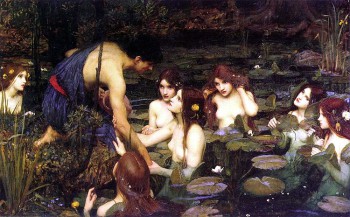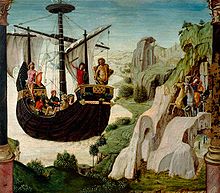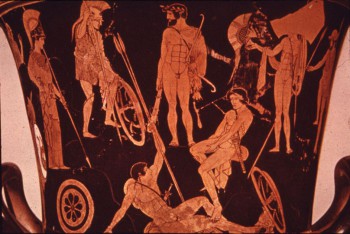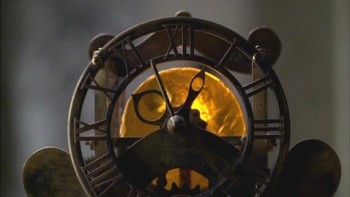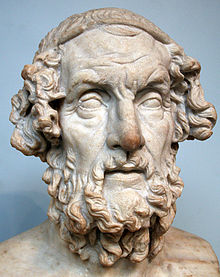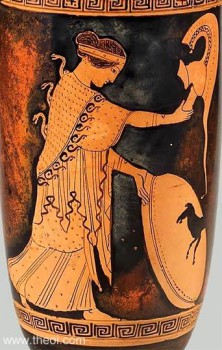Ancient Worlds: The Real Housewives of Mount Olympus
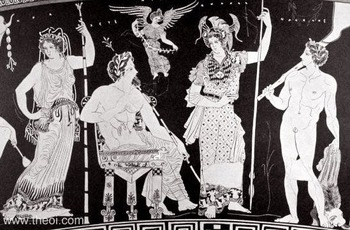 After the invocation of the Muse of Love that I discussed two weeks ago, the Argonautica launches into what is, quite honestly, one of my favorite scenes in all of ancient literature.
After the invocation of the Muse of Love that I discussed two weeks ago, the Argonautica launches into what is, quite honestly, one of my favorite scenes in all of ancient literature.
Apollonius gives us a conference among the gods to discuss our heroes’ fates. Homer has done the same on multiple occasions, but here, the conference is between two of Olympus’s leading goddesses, Hera and Athena.
Much as in the Odyssey, Athena is here fulfilling her role as the tutor of young heroes. She supports Jason in his quest much as she did (will) Odysseus. Hera also now stakes her interest in the outcome of the Argonaut’s quest: She really doesn’t like Pelias and wants to see him destroyed.
Together they decide that the best way for everyone to get what they want out of this is for Medea, the daughter of Aeetes, to fall in love with Jason. Not a little schoolgirl crush, either. No, this has to be a big whammy of a love, so much so that she is willing to betray her father and her people in order to assist Jason in his quest .
There’s just one problem: Athena’s a virgin and Hera is married. They know nothing about falling in love.

